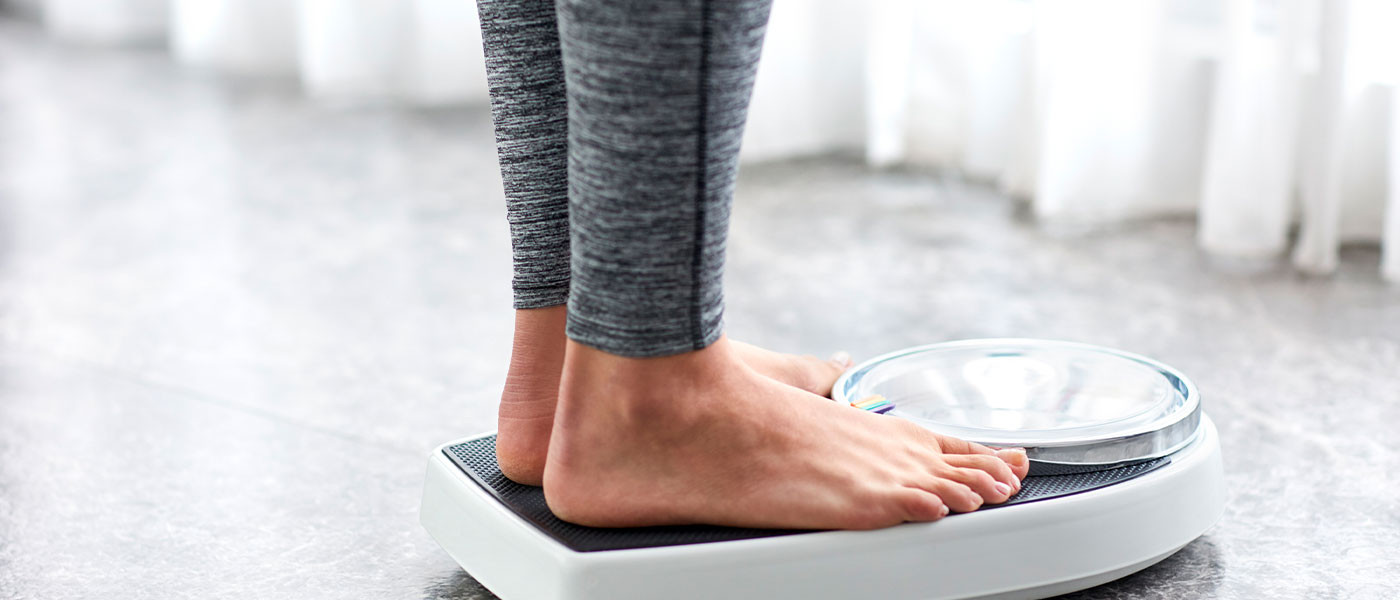Semaglutide, including brands like Wegovy, can be safely transported on flights when proper precautions are taken to ensure medication stability during air travel. This detailed guide from flyermedia.net provides practical advice on how to manage your semaglutide prescriptions effectively while traveling, so you can maintain your health regimen without interruption. Keep reading to learn more about medication storage solutions, security checkpoint procedures, and strategies for managing your dosage schedule.
1. Why Pack Semaglutide in Your Carry-On Luggage?
Packing semaglutide in your carry-on luggage is crucial for maintaining its effectiveness. Why is this the best practice?
Checked baggage is subject to extreme temperature variations in the cargo hold. These fluctuating temperatures can compromise the medication’s stability. According to the International Air Transport Association (IATA), cargo holds can experience temperatures as low as -40°C (-40°F) during flight, which is far outside the recommended storage range for semaglutide. Keeping your medication with you allows for controlled conditions and monitoring.
Using a thermal or insulated travel case is advisable to maintain the ideal temperature range of 36°F to 46°F. Unopened semaglutide can remain stable between 46°F and 86°F for up to 28 days, as noted by GoodRx. However, avoid extreme temperatures and direct contact with ice packs to prevent freezing. Freezing can render the medication ineffective, so proper insulation is key.
2. How to Declare Semaglutide at TSA Checkpoints?
Declaring semaglutide at TSA checkpoints ensures a smooth security process. What steps should you take?
The TSA permits injectable medications in carry-on luggage but requires them to be declared during screening. This policy is clearly stated on the TSA website. Labeling your semaglutide clearly and keeping it in its original packaging with the prescription label visible can expedite the process.
While not mandatory, carrying a doctor’s note or prescription can be beneficial if TSA officers or customs agents have questions. Ensure the name on your prescription matches your identification and boarding pass to avoid any complications. According to a 2023 TSA guideline update, providing clear documentation can significantly reduce delays during security checks.
 Woman holding a semaglutide pen with airplane in background, representing travel preparedness
Woman holding a semaglutide pen with airplane in background, representing travel preparedness
3. How Does an Insulated Travel Case Protect Semaglutide?
An insulated travel case is essential for protecting semaglutide during travel. How does it work?
These cases are designed to maintain a stable temperature, shielding your medication from extreme conditions. Some insulated cases include built-in thermometers, allowing you to monitor the internal temperature and ensure your semaglutide remains within safe limits. A study published in the Journal of Pharmaceutical Sciences highlighted the importance of temperature-controlled packaging for maintaining the efficacy of temperature-sensitive medications during transit.
If you lack an insulated case, wrap the medication in a soft cloth and store it in the coolest part of your carry-on bag. Avoid exposing the medication to direct sunlight or heat sources, such as a car dashboard or heater, to prevent temperature fluctuations.
4. What To Do If You Miss a Dose of Semaglutide While Traveling?
Missing a dose of semaglutide while traveling can be concerning. What steps should you take to manage it?
If your next dose is more than 48 hours away, take the missed dose as soon as possible. If your next dose is within 48 hours, skip the missed dose and resume your regular schedule. If you miss multiple doses (more than two weeks), consult your doctor. They might recommend restarting at a lower dose to avoid potential side effects.
Setting phone reminders to track your dosing schedule is helpful, especially when crossing time zones. Consistent timing ensures optimal results. According to a clinical trial published in the New England Journal of Medicine, maintaining a consistent dosing schedule is crucial for the effectiveness of semaglutide in weight management.
5. Why Should You Pack Spare Semaglutide Pens?
Packing spare pens when traveling ensures you’re prepared for any unforeseen issues. Why is this important?
Semaglutide pens can sometimes malfunction, and having extras ensures you won’t miss a dose. Before using each pen, inspect it carefully. The liquid should be clear and colorless. If it appears cloudy or contains particles, discard it and use a new one, as recommended by my-bmi.co.uk.
Keep the helpline number for your medication readily available (e.g., Wegovy helpline at 833-4-WEGOVY) in case you encounter any issues. They can offer guidance on handling malfunctions.
 Woman in athletic wear smiling, symbolizing successful weight management through medication and lifestyle changes, courtesy of Genesis Lifestyle Medicine
Woman in athletic wear smiling, symbolizing successful weight management through medication and lifestyle changes, courtesy of Genesis Lifestyle Medicine
6. How to Research International Medication Regulations Before Flying?
Researching international medication regulations is essential for avoiding issues abroad. What should you consider?
When traveling internationally, check the medication regulations for your destination. Some countries limit the amount of prescription medication you can bring. For example, you might be allowed a 30-day supply in one country and a 90-day supply in another. Certain countries may also require specific documentation, such as a medical certificate, as noted by the CDC.
Contact the embassy of your destination or consult with your doctor well in advance. They can assist you in gathering the required paperwork and prevent any unexpected issues at customs.
7. How Do Time Zone Adjustments Affect Semaglutide Dosage?
Time zone adjustments can complicate your dosing schedule. How should you adapt?
Semaglutide offers flexibility, as it can be taken at any time of day, but consistency is key. Consult your doctor about adjusting your schedule to align with your destination’s time zone. A consistent schedule helps maintain the drug’s effectiveness, as highlighted in a study by the National Institutes of Health (NIH).
Consider gradually shifting your injection time a few days before your trip to ease the transition. This proactive approach can help minimize disruptions to your treatment plan.
8. Why Is Protecting Semaglutide From Light Important?
Protecting semaglutide from light is crucial for maintaining its efficacy. Why is this necessary?
Semaglutide should always be stored in its original carton to shield it from light. Light exposure can degrade the medication, reducing its effectiveness, according to Medical News Today. Ensure the carton is securely placed in your travel case or carry-on bag when packing.
Avoid leaving your medication in direct sunlight or near windows, as these conditions can accelerate degradation. Proper storage ensures that each dose remains potent.
9. How Can You Manage Semaglutide While on a Cruise?
Managing semaglutide on a cruise requires similar precautions to air travel. What should you keep in mind?
Like air travel, cruises involve potential temperature fluctuations and logistical challenges. Keep your semaglutide in its original packaging and store it in a cool, dry place away from direct sunlight. If your cabin has a refrigerator, use it to maintain the medication at the recommended temperature, but avoid freezing.
When going ashore, pack only the semaglutide you need for the day in an insulated container. Be aware of the regulations of the countries you’ll be visiting and carry any necessary documentation, such as a prescription or doctor’s note.
 Friends enjoying a walk, representing the benefits of medical weight loss programs in promoting an active lifestyle, courtesy of Genesis Lifestyle Medicine
Friends enjoying a walk, representing the benefits of medical weight loss programs in promoting an active lifestyle, courtesy of Genesis Lifestyle Medicine
10. What Are the Key Considerations for Long-Term Travel With Semaglutide?
Long-term travel with semaglutide requires careful planning. What are the main points to consider?
For extended trips, ensure you have an adequate supply of semaglutide. Work with your doctor to obtain refills as needed and consider having your prescription transferred to a pharmacy at your destination, if possible. Research the availability of semaglutide in the countries you plan to visit, as formulations and brand names may vary.
Pack all necessary supplies, such as alcohol swabs and sharps containers for safe disposal of used needles. If you’re traveling for several months, consider using a medical courier service to ship your medication to your location, ensuring it remains temperature-controlled throughout the journey.
Addressing Common Concerns About Traveling With Semaglutide
What if my semaglutide pen freezes during travel?
If you suspect your semaglutide pen has frozen, do not use it. Freezing can alter the medication’s composition and reduce its effectiveness. Dispose of the pen properly and use a spare. Always store your medication in an insulated case to prevent freezing.
Can I use ice packs to keep my semaglutide cool?
While ice packs can help keep medication cool, avoid direct contact between the ice pack and your semaglutide pen. Direct contact can cause the medication to freeze. Instead, wrap the ice pack in a cloth or use a specialized cooling case with a built-in temperature regulator.
What should I do if I lose my semaglutide prescription while traveling?
If you lose your semaglutide prescription, contact your doctor immediately. They can provide you with a new prescription or contact a pharmacy at your destination to verify your medication. Keep a digital copy of your prescription on your phone or email as a backup.
How can I dispose of used semaglutide pens safely while traveling?
Dispose of used semaglutide pens in a sharps container. If you don’t have a sharps container, use a hard plastic container with a secure lid, such as a laundry detergent bottle. Label the container clearly as “sharps” and dispose of it properly at a designated disposal site or medical facility.
Are there any foods or beverages I should avoid while taking semaglutide and traveling?
While traveling, it’s important to maintain a healthy diet to support your weight management goals. Avoid excessive consumption of high-fat, high-sugar, and processed foods, as these can counteract the effects of semaglutide. Stay hydrated by drinking plenty of water and limit your intake of sugary beverages and alcohol.
Can I get semaglutide at my travel destination if needed?
Depending on your destination, you may be able to obtain semaglutide locally with a valid prescription. However, regulations vary widely, so it’s essential to research the availability of the medication and the requirements for obtaining a prescription in advance. Consult with your doctor and your destination’s embassy to ensure you have all the necessary documentation.
What are the potential side effects of semaglutide, and how can I manage them while traveling?
Common side effects of semaglutide include nausea, diarrhea, constipation, and abdominal pain. These side effects can be exacerbated by travel-related factors such as changes in diet, hydration, and sleep patterns. To manage these side effects, maintain a healthy diet, stay hydrated, and get adequate rest. Over-the-counter medications like anti-diarrheals or stool softeners can also provide relief. If side effects persist or become severe, consult with a healthcare professional.
How does altitude affect semaglutide?
Altitude itself does not directly affect semaglutide. It is important to stay hydrated and manage any side effects proactively when traveling at high altitudes.
Can I take semaglutide if I have jet lag?
Yes, you can take semaglutide even if you have jet lag. Jet lag primarily affects your sleep-wake cycle and does not directly interfere with the medication.
Is it OK to take semaglutide If I’m pregnant or breastfeeding?
Semaglutide is generally not recommended during pregnancy or breastfeeding. It’s important to discuss this with your healthcare provider for personalized advice.
Conclusion: Traveling Confidently With Semaglutide
Traveling with semaglutide doesn’t have to be stressful. By planning ahead and following these tips, you can ensure your medication remains safe and effective throughout your journey. Remember to keep it in your carry-on, declare it at security checkpoints, and use an insulated case to protect it from temperature extremes. Bring spare pens, monitor your dosing schedule, and research international regulations if you’re heading abroad.
At flyermedia.net, we’re dedicated to supporting your health journey wherever life takes you. If you have questions about managing your medication or need guidance on traveling with semaglutide, don’t hesitate to contact us at Address: 600 S Clyde Morris Blvd, Daytona Beach, FL 32114, United States or call us at Phone: +1 (386) 226-6000. Explore more resources and discover a world of aviation insights at our website: flyermedia.net. Safe travels!
